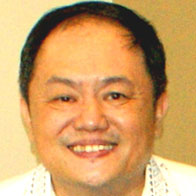We have heard of the refrain, “Money makes the world go round” and this would be true of winning elections as well.
 It would be naive to believe that it should cost nothing to win political office and indeed to form a government.
It would be naive to believe that it should cost nothing to win political office and indeed to form a government.
But how much money is needed before it becomes excessive, unfair, immoral and illegal?
Sources of political financing
Currently in Malaysia, there is little transparency and accountability when it comes to political financing.
If not for the expose by the Wall Street Journal of the RM2.6 billion channelled into the private bank account of Prime Minister Datuk Seri Najib Razak, we would not have realised how generous the Arabs were and their eager participation in our national political affairs.
Huge private donations such as the one received by Najib are as rare as halal pork but political parties and politicians do receive donations from the public.
The opposition parties regularly hold fund-raisers.
Another big source of funding available to both sides would probably be from corporate entities keen to “invest” political seed money and hoping that it would bear fruits.
You can’t fault the businessmen, they are in it for the money. But what we do need is transparency and accountability, not just in the giving but in the way the government hands out contracts and make deals with the private sector.
Let us also not forget that the main component parties in Barisan Nasional are also big business owners.
Umno, MCA, MIC and PBB are direct owners of multi-billion ringgit enterprises given sweetheart deals by... yes, the government.
Since coming into power in 2009, Najib has taken vote-buying to a new level with his “I help you, you help me” mantra.
Quoting political scientist Bridget Welsh in an article she wrote in April 2013: “The use of electoral incentives is well known and honed, but there is a fundamental shift in the overall pattern this time round. Scholars such as Universiti Sains Malaysia emeritus professor Francis Loh have described the electioneering pattern as from one of patronage to ‘developmentalism’, where voters have moved from relying on everyday personal ties and relations with politicians to the promise of development projects.”
Developmentalism is nothing but the abuse of public funds to buy votes.
Welsh studied three budgets/supplemental budgets and conservatively estimated that Najib, since taking office in 2009, until just before the dissolution of Parliament in April 2013, used RM57.7 billion for the 13th general election.
This includes the 1Malaysia People’s Aid (BR1M) handouts which account for only about 10% of the estimate.
The consequences of such targeted allocation of public resources are that its benefit are often short term, unfair in its distribution and deprives funds from areas really in need of development like education, healthcare, essential infrastructure and research.
How money is spent
Under the Election Offences Act, there is a limit of RM200,000 for a candidate contesting for a federal seat but according to Tan Sri Dr Chua Soi Lek, the former MCA president, the actual figure spent usually is between RM500,000 and RM1 million ringgit per candidate.
The excess could be attributed to the party and not the candidate.
Given this figure, the budget for Barisan Nasional to contest all 222 federal and 576 state seats in GE13 would be between RM400 million and RM800 million.
That’s a whole lot of money! Is it any wonder that Najib needed a RM2.6 billion slush fund to “buy” GE13.
So, how are monies spent during elections?
There are numerous reports of cash being given out to voters to secure votes, ranging from RM50 to RM500 each voter and stacks of cash handed out to village or longhouse chiefs to secure the votes of whole communities.
The practice of reimbursing voters for travelling to vote is also common.
Money would also be spent to treat voters to meals, hampers, vouchers, lucky draws and free transport.
Celebrities like Psy of the Gangnam-style fame would be hired to draw the crowd at political rallies. Most parties give allowances to their party workers.
But the biggest recipients of election expenditure were probably those in the advertisement industry.
Tens of million were probably spent by BN to buy ad space in both print and online media and billboards throughout the country.
Is cash really king?
Tun Dr Mahathir Mohamad said Najib told him that “cash is king”. With money you can buy anything, even elections.
And looking at BN’s access to public resources, private sources and even foreign sources, it does look like a done deal for the next general election.
How can the playing field be levelled for the 14th general election where money politics would likely be taken to a whole new level as Najib’s administration faces possible defeat in the light of the RM2.6 billion deposit, the 1Malaysia Development Bhd scandal and divisions within Umno?
This would be a question I would like to explore in my next article. – December 28, 2015.
* This is the personal opinion of the writer or publication and does not necessarily represent the views of The Malaysian Insider.


Comments
Please refrain from nicknames or comments of a racist, sexist, personal, vulgar or derogatory nature, or you may risk being blocked from commenting in our website. We encourage commenters to use their real names as their username. As comments are moderated, they may not appear immediately or even on the same day you posted them. We also reserve the right to delete off-topic comments